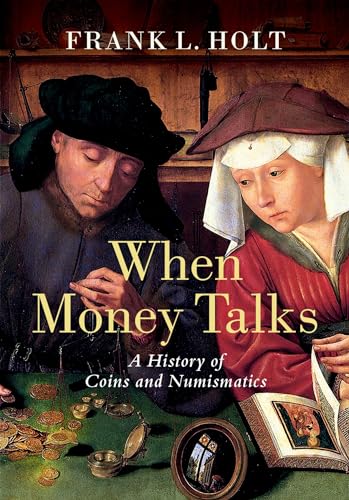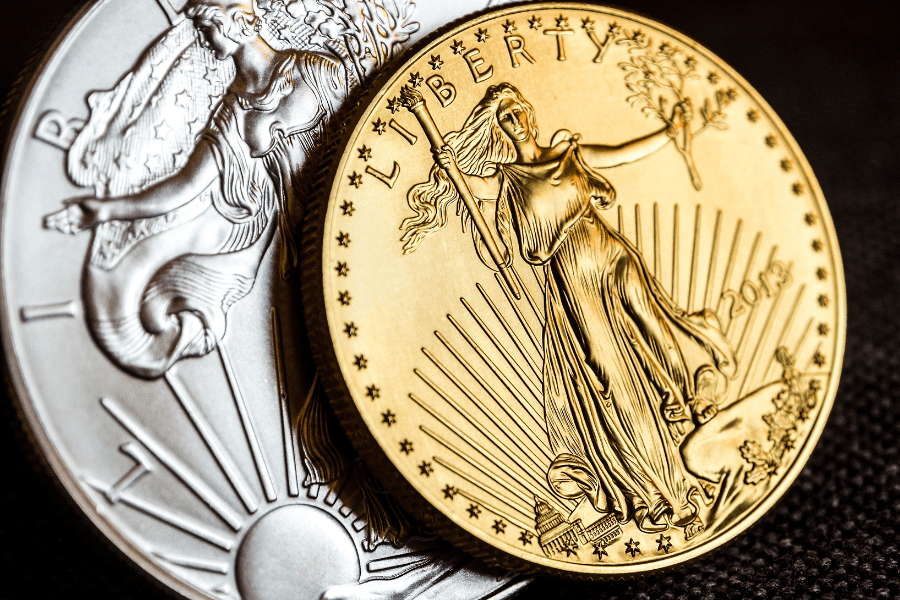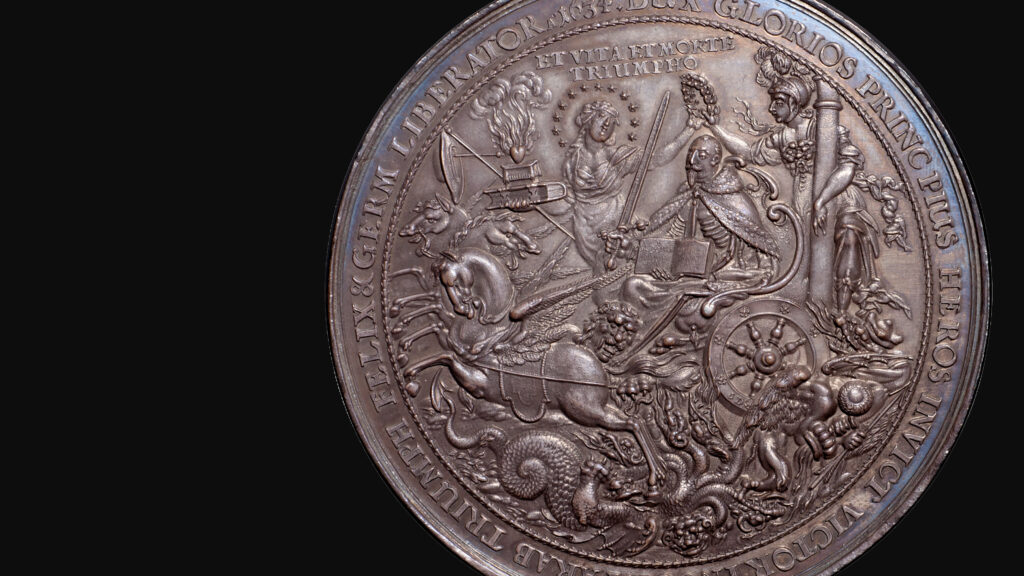Excellent Tips On Picking Currency Exhibition And Bullion Coins
Wiki Article
How Can I Utilize The Database To Look Up Numismatics Regarding Global And Regional Associations?
Conducting research on numismatics related to regional and global associations involves leveraging databases that store information about numismatic organizations, conferences, publications, and collaborative projects. A structured approach is provided to assist you in conducting this kind of study. JSTOR is a database of academic publications, conference proceedings and databases.
Define Research Focus: Specify your research objectives. Do you have a desire to researching the past and current activities of international numismatic associations regional collaborations, conferences publications, or specific numismatic topics discussed within these associations? Clarify what you are seeking to aid in your exploration.
Search Method: Search using keywords such as "numismatic association", "global numismatics", "regional numismatic societies" and, if applicable, include the names of particular associations or geographical regions. Advanced search is a way to filter your results according to date, types of documents (such as association newsletters or conference papers) and also by geographic area.
Data collection: Get information about the members' mission, their history, activities and publications by global and regional associations. Look up information on previous or forthcoming conferences, research collaborations, and workshops. Look through databases to find information on the members, their contacts and leadership information.
Analysis: Examine the data to understand the impact and significance of regional and global numismatic associations. Analyze how these associations aid in the development of numismatic knowledge, foster international collaborations, and spread research through publications and conferences.
Cross-Referencing Verify your findings using data from multiple databases and sources. Examine the activities and initiatives of various associations to gain an overview of the global and local developments in the field of numismatics.
Documentation - Record your findings with a reference to the sources you used and noting any methodologies used. Note the details of the databases you visited as well as the search terms you utilized as well as the importance each source offers to your research question.
Stay up-to-date: Numismatic associations are always evolving by publishing new publications and conferences. They also collaborate on projects. Updates on websites of newsletters, associations, research databases and websites of associations will keep you up-to-date with the latest developments in global numismatics.
These steps will enable you to effectively use databases to study numismatics as it relates to both regional and global organizations. This approach enables a thorough investigation into the organizational structure, scholarly activities, and collaboration efforts that define the numismatic field on both an international and regional scale. See the most popular numismatics tips for site tips including banknote design, currency society, peso, antique banknotes, coin value, penny, bank, ringgit, coin appraisal, banknote society and more.

How Can I Search For Coin Dealers On A Numismatics Database?
For numismatic research, it is essential to utilize databases that contain information on dealer listings and market trends, as well as historical transactions, as well as numismatic transactions. The following is a methodical approach for conducting this type of research Database Selection: Choose databases that specialize in dealers' listings and numismatics. Market places for numismatics online as well as dealer directories that are maintained by numismatic groups (such the Professional Numismatists Guild), and auction house databases are just a few examples.
Define Research Focus: Specify your research objectives. Are you looking to understand the history and profiles of specific coin dealers and trends in numismatic sales and the price of coins over time, or the influence of dealers on numismatic collection trends? Find your niche to narrow your research.
Search Strategy: Use keywords like "coin dealers",” "numismatic marketplace,"" "dealer listings," as well as geographic regions or names of specific dealers in the event that they are relevant. Make use of advanced search features to filter results by date, dealer specialties (such as coins from the past contemporary coins or rare coins) and the type of transaction (auctions, private sales).
Data Collection: Access comprehensive information about sellers of coins, such as business names, location, specialties or years of operation as well as historical profiles. Find information on notable dealers in the field. Learn more about their contribution to numismatic scholarship and collectible communities.
Analysis: Analyze the data to understand the role of dealers in the field of numismatics. Find out how dealers impact market dynamics, create the trends in collecting as well as authenticate and evaluate coins, and contribute to the dissemination of numismatic knowledge through publications or educational activities.
Cross-Referencing. Verify that your information is complete and accurate by comparing it to other databases and auction records as well as archives of the past. This guarantees the accuracy and completion of your research. You will gain insights into the various coin dealers' roles in the field of numismatics.
Documentation: Document your findings in a systematic manner including citations to sources and a note of the methods you used. Keep track of details on the databases you have accessed, the keywords used to search, and the importance of every source you use to answer your research questions.
Stay Up-to-date The numismatic marketplace and dealer landscape evolve with new auctions, dealer entries and market developments. Keep track of updates from numismatic organizations auction houses, online marketplaces, and other sources to remain updated on the most recent developments of numismatic trade.
These steps will enable you to effectively explore the numismatics of coin dealers. This approach allows a comprehensive study of historical profiles as well as market influences and research contributions to the numismatic area from coin dealers. View the most popular commemorative coins examples for more tips including banknote book, copyright detection, coin news, currency authentication, coin catalog, bank, coin mold, coin club, coin history, numismatic investment and more.

How Do I Search For Numismatics Related To Collectors In Databases?
Here's a method for conducting research like this: Database Selection: Select databases that are specialized in numismatic collections, collector profiles, numismatic society, and interest in collectors. Here's a method to conduct research on this subject: Database Selection: Choose databases that specialize in collector profiles, numismatic collections and numismatic society profiles. Online collector forums websites, sites of numismatic associations (such as the American Numismatic Association), databases for collectors, and special research platforms are a few examples.
Define Research Focus: Specify your research objectives. Are you seeking to understand the interests of particular collectors, the creation of significant collections, the trends in numismatic collecting or the cultural and historical motivations behind collecting practices? Find out the key to your research.
Search Strategy: Use keywords such as "numismatic collectors,"" "collector profiles,"" "numismatic societies," and add specific collector names or geographic regions if applicable. Make use of advanced search features to sort results based on date, collecting specialties (such as old coins, exonumia, paper money) as well as membership in numismatic societies.
Data collection: Get access to information on collectors like their biographies and collecting interests. Additionally, you can access information about notable acquisitions or contributions to numismatic research. Find out about the history and distribution of significant collections. This includes auction results and catalog entries.
Study the data to understand what motivates and motivates collectors of numismatics. Explore how collectors influence the market, influence trends in collecting and aid in the preservation and dissemination the numismatic data through exhibitions, publications or educational programs.
Cross-Reference: Ensure the accuracy of your research by comparing data from different databases, collector profiles and numismatic publications. Also, make sure to check auction archives. It will ensure the accuracy and thoroughness of your research. Additionally, you will learn more about how collectors contribute to the numismatic industry.
Documentation: Document all your findings, noting the sources you used and the methods that were employed. Keep track of the specifics of the databases you visited as well as the search terms that you utilized, as well as how each resource connects to your research.
Stay current: Numismatics' collecting interests and styles change as time passes. Stay current by monitoring updates from collector forums, numismatic society publications, and specialist databases of collectors for the most recent developments in numismatic collection practices and the newest trends.
Following these steps, you can effectively make use of databases to research the relationship between numismatics and collectors. This technique allows for a complete analysis of the motives and interests of collectors, as well as their contribution to the numismatic community. See the top currency dealer examples for blog info including banknote news, mint condition, coin club, banknote storage, central bank, coin authenticity, coin news, dirham, copyright detection, numismatic investment and more.

How Do I Search A Database Of Numismatics For Educational Institutions?
In order to research numismatics for educational institutions, it's important to choose databases that concentrate on academic initiatives and programs such as research museums research publications, scholarly works, and many other related numismatic topics. To conduct a study follow these steps: Database Selection: Select databases that specialize in museums, academic institutes or scholarly journals. They include library catalogues from universities as well as academic journal databases (like JSTOR), and museums databases.
Define Research Focus: Specify your research objectives. Are you interested in learning more about the numismatic programs provided at universities, research initiatives carried out by academic institutions, numismatic collections that are held by museums associated with educational institutions, or research by scholars of numismatics? Find out what you're looking for to help guide your search.
Make use of keywords such as "numismatics classes," "academic research in Numismatics," or "university museum with a numismatic collection" and, if applicable add specific institutions. Advanced search options let users to search for the academic subject (history or archaeology) and publication type (articles dissertations, research papers or museum catalogs) as well as date and other.
Data collection: Access information on the numismatic courses offered by educational institutions, research projects and museum collections. Collect details like the syllabus for your course and research abstracts. Also, search for museum catalog entries or writings by professors or researchers who specialize in numismatics.
Analysis: Examine your data in order to understand the research and academic contributions of educational institutions towards the study of numismatics. Study the course scope in numismatics. Also, consider the interdisciplinarity approach to numismatics, the importance and impact of museum collections on scholarship in numismatics as well as the impact of numismatic publications.
Cross-Referencing - Check the validity of your study by comparing data from different databases, websites of universities as well as museum collections and academic journals. This ensures completeness and accuracy in your research. You will also get more understanding of how the educational sector can be involved in Numismatics.
Documentation: Document your findings systematically including citations to sources and noting methodologies used. Notify the database's name or search terms, as well as the relevance of each source to your study.
Numismatic research, educational programs, as well as research projects are always evolving. Stay updated. Keep an eye on updates on the university's websites, news from museums, as well as academic publications to stay current on the latest developments in numismatics in educational institutions.
These steps will enable you to effectively explore numismatics as it relates to educational institutions. This will allow you to explore the educational possibilities and scholarly contributions which have helped shape the academic study as well as appreciation and understanding of numismatics. Check out the best coin forum for more tips including coin news, peso, banknote design, banknote dealer, coin club, quarter, coin club, coin issue, banknote collection, banknote grading and more.

What Can I Do To Research Numismatics With Regard To Networking Opportunities With An Online Database?
Researching numismatics with regards to networking opportunities involves utilizing platforms and databases that enable connections between dealers, collectors, scholars, and enthusiasts in the numismatic world. This is a method that can be structured to conduct such study. Selecting a Database: Select databases and platforms which are specialized in the field of numismatic networks. This includes numismatic websites, online communities (such as CoinTalk or Reddit's r/Coins) professional networking platforms as well as social media communities.
Define Research Focus : Specify networking goals. Do you wish to network with collectors, exchange information, engage with dealers in order to acquire or sell objects, work with researchers for research projects, or take part in Numismatic events and conferences? Find out what you are looking for to guide your search.
Search Strategy - Use key words for example "numismatic networking,"" coin collectors forums," numeric social media groups," and specific interests or geographical regions if relevant. Utilize search functions within platforms in order to find relevant groups, events, and forums.
Get information on networking within the numismatic community. Data collection: Get information about networking opportunities within the numismatic community.
Analysis: Examine all data to determine potential networks and opportunities that are relevant. Analyze the levels of participation as well as the diversity, frequency and potential for collaboration of groups and forums.
Cross-Referencing: Verify your results using information from various databases and other sources, like social media, numismatic society sites and professional networks. This lets you discover an extensive network of opportunities across regions and platforms.
Engagement: Engage in your the networks you choose by taking part in discussion, exchanging insights or asking questions and providing advice. Meet other collectors, dealers and scholars to share valuable information and build your circle of friends.
Documentation: Record your social networking activities in a systematic way by noting the platforms used, groups that you joined, events you went to and the contacts you made. Document and track the opportunities you explored and the results you achieved by networking.
You can use databases to discover numismatic opportunities by following these easy steps. This method will enable you to build your personal or professional numismatic community, which can be used for collaborations, information exchange and participation in numismatic gatherings. View the top rated pound for website advice including coin display, banknote rarity, quarter, rare banknotes, rial, legal tender, euro, coin marketplace, coin issue, real and more.
